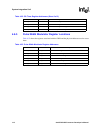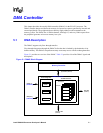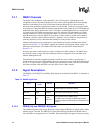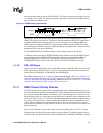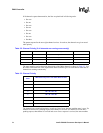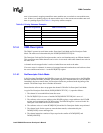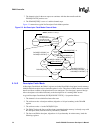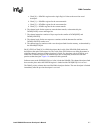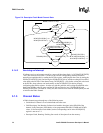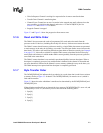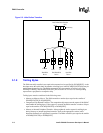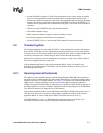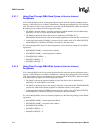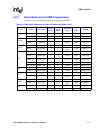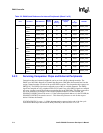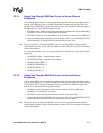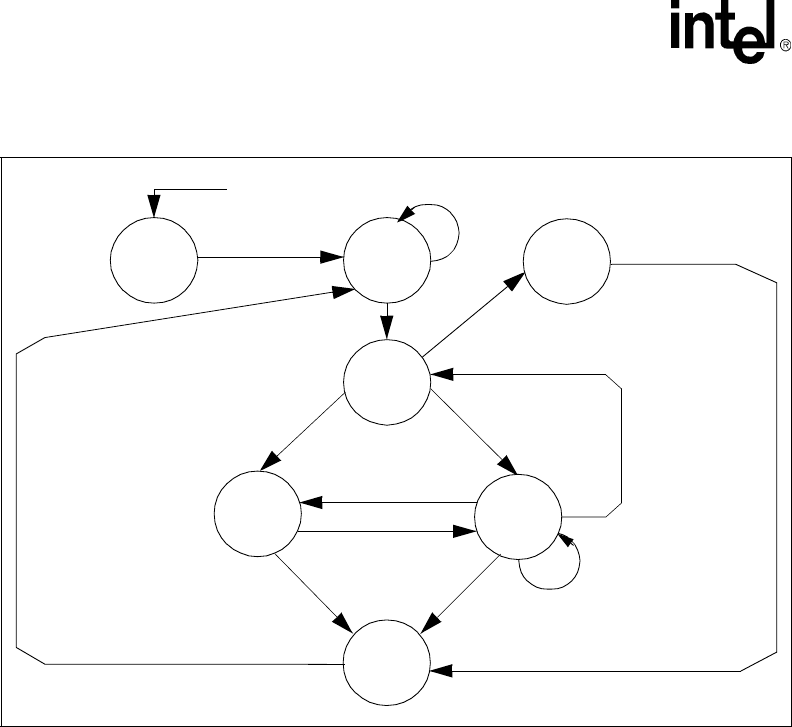
5-8 Intel® PXA255 Processor Developer’s Manual
DMA Controller
5.1.4.3 Servicing an Interrupt
If software receives an interrupt caused by a successful descriptor fetch, i.e. DCSRx[STARTINTR]
= 0b1, then software must write a 1 to this bit to reset the corresponding interrupt. Software
normally accomplishes this by reading the DCSRx register, modifying the data value by setting the
DCSRx[STARTINTR]=0b1 and leaving the DCSRx[RUN] bit set, and then writing this modified
value back to the DCSRx. If the channel stops, DCSRx[RUN] = 0b0, before writing this value back
to the DCSRx, then software can inadvertently set the DCSRx[RUN] bit before properly
configuring other DMA registers. In order to avoid this problem, after writing the modified value
back to the DCSRx, software must read the DCSRx and check to see if DCSRx[RUN] and
DCSRx[STOPSTATE] are both set. If they are, then software must clear the DCSRx[RUN] bit and
re-initialize the DMA channel.
5.1.5 Channel States
A DMA channel can go through any of the following states:
• Uninitialized: Channel is in an uninitialized state after reset.
• Valid Descriptor, Not Running: Software has loaded a descriptor in the DDADR of the
channel, in the Descriptor Fetch Mode, or has programmed DSADR, DTADR and DCMD
values, in No-Descriptor Fetch Mode, but the corresponding run bit in the DCSR[RUN]
register is not set to a 1.
• Descriptor Fetch, Running: Fetching four words of descriptors from the memory.
Figure 5-4. Descriptor Fetch Mode Channel State
Uninitialized
Va l i d
Descriptor
RESET
(Hardware or Sleep)
not running
(running)
Wait
for
request
Transferring
Data
Stopped
descriptor
fetch
Error
Channel
RUN=1
DCMD[LENGTH] 0
& DCMD[FLOWSRC] = 0
& DCMD[FLOWTRG] = 0
DDADR[STOP] = 1
DDADR[STOP] = 1
DCMD[FLOWSRC] xor
DCMD[FLOWTRG] = 1
DCMD[FLOWSRC] &
DCMD[FLOWTRG] = 0
Request Asserted
DDADR[STOP] = 0
DCMD[FLOWSRC] xor
DCMD[FLOWTRG] = 1
RUN=0
≠



